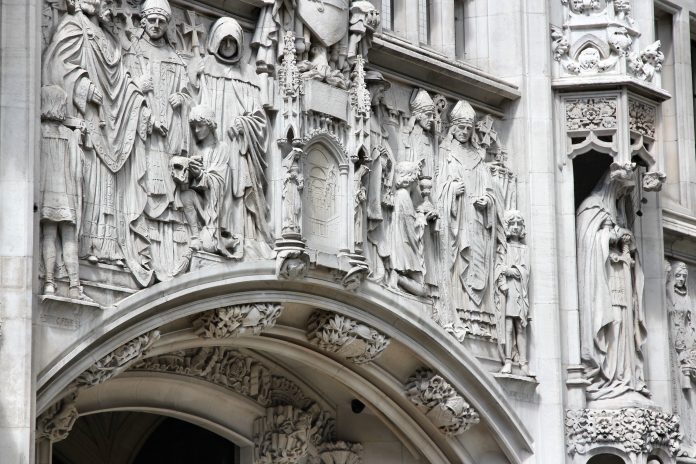In a much-anticipated decision, the UK Supreme Court has ruled that Boris Johnson’s parliamentary prorogue is unlawful
Convening to give the decision today (24 September), President of the UK Supreme Court Lady Hale, said the 11 judges has unanimously agreed to rule the Prorogue as unlawful with “no reasonable justification.”
Prime Minister Johnson has been defeated in parliament, with a bill that legally requires him to ask for an extension on top of the planned 31 October deadline. These swift parliamentary negotiations came as a blow to Boris Johnson, who has consistently said that the UK will leave the European Union on that deadline. His prorogue was set to last from 10 September to 14 October.
On Friday, Open Access Government spoke to Sailesh Mehta at Red Lion Chambers, on the significance of the judgement:
“The Supreme Court will decide questions of fundamental legal and constitutional importance affecting the future of Brexit. The Court, which unusually consists of 11 members (rather than the usual 5 or 7) will first have to decide whether it has the power to stop the Prime Minister from proroguing Parliament. If the Court decides that it does have this power, then it must rule upon the question whether the Prime Minister acted unlawfully in doing so.
“The Government position is that the Prime Minister’s decision to advise the Queen on a suspension of Parliament is an entirely political decision and therefore immune from judicial scrutiny.
“In any event, say the Government’s lawyers, the Prime Minister was right in his view that the suspension was needed to prepare the Queen’s Speech setting out a new Government agenda for the post-Brexit era. Lord Pannick argues on behalf of the other side that the aim of the prorogation was to unlawfully muzzle Parliament in the lead-up to Brexit.
“The real question that the Court has will decide upon is: who has the ultimate power to suspend Parliament, and therefore suspend Parliamentary debate – the Prime Minister or Parliament?”
Lady Hale, speaking on behalf of the court, described a lack of evidence from the Prime Minister’s legal team. She said that the length and immediacy surrounding the suspension of parliament was an “extreme effect”, which lacked “justification”, validating the sentiments of countless MPs who sung and resisted during the final sitting of Parliament on 10 September.
The disruption to any new Brexit legislation, the number of crucial bills lost e.g. the Domestic Abuse bill, and the connotations of a Prime Minister overruling elected MPs were not brought up by the Government during the proceedings.
Lady Hale further commented on the Government’s argument:
“It does not explain why it was necessary to bring Parliamentary business to a halt for five weeks before that, when the normal period necessary to prepare for the Queen’s Speech is four to six days. It does not discuss the difference between prorogation and recess.
“It does not discuss the impact of prorogation on the special procedures for scrutinising the delegated legislation necessary to achieve an orderly withdrawal from the European Union, with or without a withdrawal agreement, on 31st October.
“It does not discuss what Parliamentary time would be needed to secure Parliamentary approval for any new withdrawal agreement, as required by section 13 of the European Union (Withdrawal) Act 2018.”
The UK Supreme court dismissed the idea put forward by the Prime Minister that prorogue is a matter for Parliament, and immune to legal criticism. In response to this alleged immunity, Lady Hale said:
“But it is quite clear that the prorogation is not a proceeding in Parliament. It takes place in the House of Lords chamber in the presence of members of both Houses, but it is not their decision.
It is something which has been imposed upon them from outside.”
Some MPs are calling for the Prime Minister to resign for misleading the Queen.
The Supreme Court has handed Parliament the power to decide what happens now, suggesting both houses can take “immediate steps” to “meet as soon as possible.”
Both houses are eager to reconvene as soon as possible.
John Bercow, Speaker of the House, commented:
“As the embodiment of our parliamentary democracy, the House of Commons must convene without delay. To this end, I will now consult the party leaders as a matter of urgency.”





![Europe’s housing crisis: A fundamental social right under pressure Run-down appartment building in southeast Europe set before a moody evening sky. High dynamic range photo. Please see my related collections... [url=search/lightbox/7431206][img]http://i161.photobucket.com/albums/t218/dave9296/Lightbox_Vetta.jpg[/img][/url]](https://www.openaccessgovernment.org/wp-content/uploads/2025/04/iStock-108309610-218x150.jpg)





